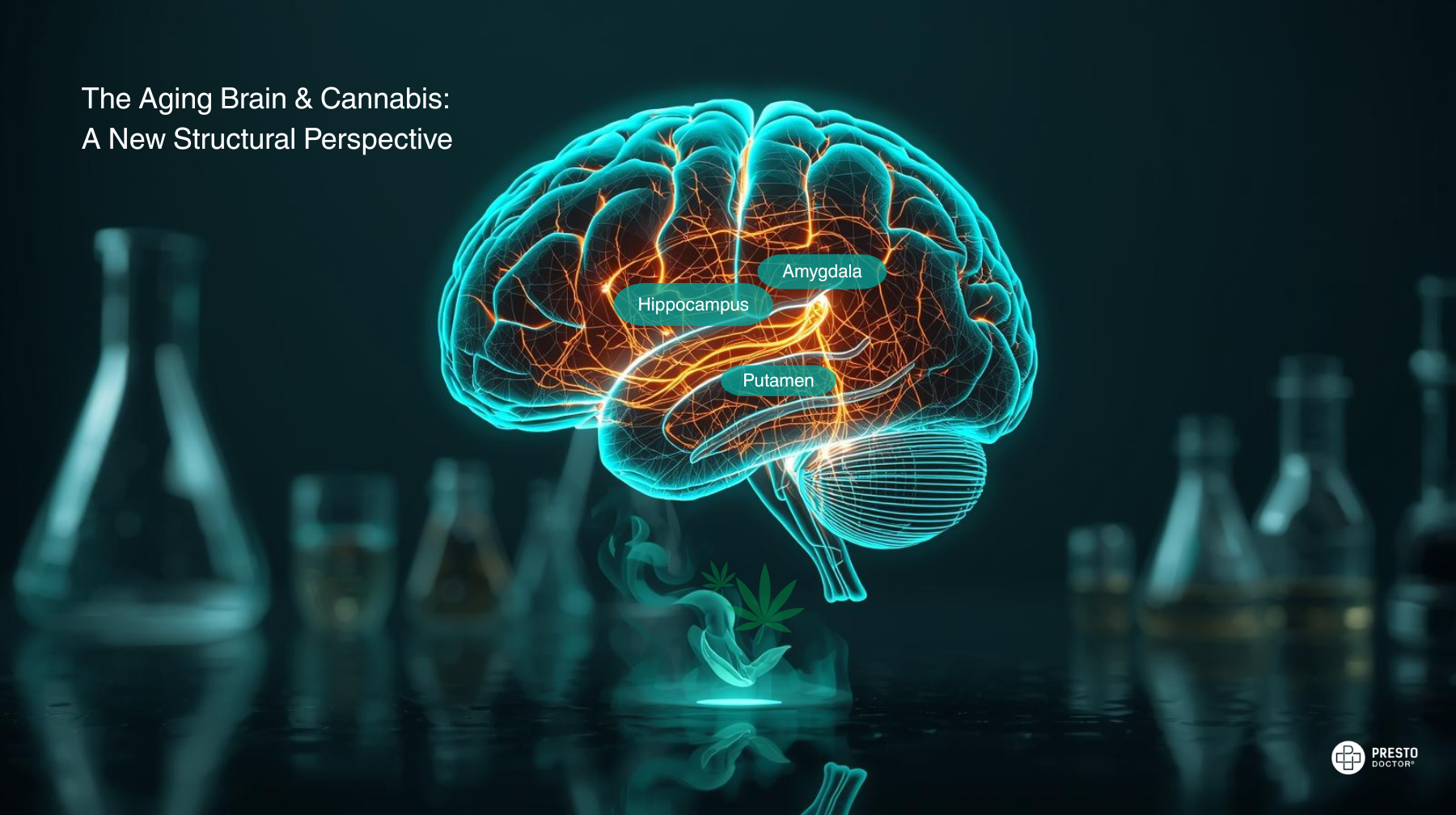
Tetrahydrocannabiphorol (THCp) is a recently discovered cannabinoid that has garnered significant attention in the field of cannabis research. This compound shares similarities with tetrahydrocannabinol (THC), the primary psychoactive component of cannabis, but exhibits distinct differences. Italian researchers first isolated and identified THCp in 2019, sparking considerable interest and speculation within the scientific community.
As a phytocannabinoid, THCp is produced by the cannabis plant and interacts with the human body’s endocannabinoid system. The endocannabinoid system regulates various physiological processes, including mood, appetite, and pain sensation. Notably, this phytocannabinoid has been found to be significantly more potent than THC. Studies suggesting it may be up to 33 times more potent. This increased potency makes it a potentially influential compound in the realm of cannabis research and medicine.
Ongoing research into THCp is continually uncovering its potential to transform our understanding of cannabis’s therapeutic properties.
Key Takeaways
- THCp is a newly discovered cannabinoid that is similar to THC but may be more potent.
- THCp and THC have similar chemical structures but different effects on the body’s endocannabinoid system.
- Potential health benefits of THCp include appetite suppression and potential anti-inflammatory properties.
- THCp and THCa are different cannabinoids with different effects on the body and potential health benefits.
- Research on this unique cannabinoid is still in its early stages. However, it has the potential to lead to new developments in cannabis-based medicine.
Understanding THCp: A New Cannabinoid on the Block
Potential Therapeutic Applications
Early research has shown that THCp may have a range of effects on the body and mind. For example, some studies have suggested that it may have anti-inflammatory properties. Thus, making it a potential candidate for the treatment of conditions such as arthritis and inflammatory bowel disease.
Neuroprotective and Anxiolytic Effects
Additionally, there is evidence to suggest that THCp may have neuroprotective effects. This means it could be beneficial for individuals with neurodegenerative diseases such as Alzheimer’s or Parkinson’s. Furthermore, some researchers believe that this phytocannabinoid may have anxiolytic properties. This means it could help to reduce anxiety and promote a sense of calm and relaxation.
A Potential Breakthrough in Mental Health Treatment
This could make THCp a valuable tool in the treatment of mental health conditions such as anxiety disorders and post-traumatic stress disorder. As our understanding of THCp continues to evolve, it is likely that we will uncover even more potential health benefits associated with this intriguing cannabinoid.
While THCp and THC are both cannabinoids that derive from the cannabis plant, they have some important differences that set them apart. One of the most significant distinctions between the two compounds is their potency. As mentioned earlier, THCp studies show it to be significantly more potent than THC, with some studies suggesting that it may be up to 33 times more powerful.
This means that even small doses of THCp could have a much more pronounced effect on the body and mind compared to equivalent doses of THC. Another key difference between THCp and THC is their chemical structure. While both compounds share a similar basic structure, there are subtle variations in their atom structure arrangement.
These differences in structure may account for the variations in potency and effects observed between THCp and THAdditionally, some researchers believe that these structural variances may also influence how each compound interacts with the endocannabinoid system, leading to differences in their physiological effects.
The Potential Health Benefits of THCp
The potential health benefits of THCp are still in exploration, but early research has suggested that this cannabinoid may have a range of therapeutic properties. One area of interest is the potential anti-inflammatory effects of this phytocannabinoid. Inflammation is a key driver of many chronic health conditions, and compounds that can reduce inflammation may hold promise for the treatment of diseases such as arthritis, Crohn’s disease, and multiple sclerosis.
Some studies have indicated that THCp may have potent anti-inflammatory properties, making it a promising candidate for further investigation in this area. In addition to its potential anti-inflammatory effects, this cannabinoid may also have neuroprotective properties. Neurodegenerative diseases such as Alzheimer’s and Parkinson’s are characterized by the progressive loss of neurons in the brain. Loss of neurons leads to cognitive decline and motor dysfunction.
Research has suggested that THCp may help to protect neurons from damage and degeneration, potentially slowing the progression of these devastating diseases. Furthermore, there is evidence to suggest that THCp may have anxiolytic effects, meaning it could help to reduce anxiety and promote a sense of calm and relaxation. This could make THCp a valuable tool in the treatment of mental health conditions such as anxiety disorders and post-traumatic stress disorder.
Exploring the Differences Between THCp and THCa
THCa is another cannabinoid that has been garnering attention in recent years for its potential health benefits. Like THCp, THCa comes from the cannabis plant and interacts with the endocannabinoid system in the body. However, there are some important differences between these two compounds.
One key distinction is their chemical structure. While both THCa and THCp share a similar basic structure, there are subtle variations in the way their atoms are arranged. These differences in structure may account for the variations in potency and effects observed between THCa and THCp.
Another important difference between THCa and THCp is their potential health benefits. While THCa has been studied for its potential anti-inflammatory and neuroprotective properties, early research has suggested that THCp may be even more potent in these areas. This could make THCp a more promising candidate for the treatment of conditions such as arthritis, inflammatory bowel disease, Alzheimer’s, and Parkinson’s.
As our understanding of these cannabinoids continues to evolve, it is likely that we will uncover even more potential health benefits associated with each compound.
How THCp Interacts with the Endocannabinoid System
How Cannabinoids Interact with the Endocannabinoid System
Cannabinoids such as THCp interact with the endocannabinoid system by binding to specific receptors known as CB1 and CB2 receptors. When these receptors are activated by cannabinoids, they can modulate the release of neurotransmitters and influence various physiological processes.
Unique Interaction with the Endocannabinoid System
Early research has suggested that THCp may interact with the endocannabinoid system in a similar manner to THC. However, with some important differences. For example, some studies have indicated that THCp may have a higher affinity for CB1 receptors compared to THC. This could account for its increased potency.
Understanding the Effects of THCp
Additionally, there is evidence to suggest that THCp may have a longer duration of action compared to THC. This means its effects may last longer in the body.
How is THCp Synthesized?
The synthesis of THC-P, or tetrahydrocannabiphorol, typically involves extracting cannabinoids from the cannabis plant and using chemical reactions to convert compounds like delta-9-tetrahydrocannabinol (THC) or THC-Free CBD into THC-P. This process often includes isomerization, where THC’s molecular structure is altered to produce THC-P. The “P” in THC-P refers to “propyl,” which denotes the unique alkyl side chain in its structure, contributing to its distinctive properties within the endocannabinoid system. Although THC-P is naturally present in cannabis, its concentrations are so low that selective cultivation isn’t practical. This is why artificial synthesis necessary. This synthesis allows manufacturers to transform relatively inert cannabinoids into the more psychotropic THC-P. By doing this, it provides consumers access to its potential benefits as a hemp-derived cannabinoid product.
The Future of THCp Research and Development
As interest in THCp continues to grow, so too does the need for further research and development in this area. There is still much to learn about this cannabinoid such as its safety profile and potential side effects. Additionally, there is a need for more research into how THC-P interacts with the endocannabinoid system and other physiological pathways in the body.
Furthermore, there is a growing interest in developing new cannabis-based medicines that harness the therapeutic potential of cannabinoids such as THCp. These medicines could offer new treatment options for individuals with conditions such as chronic pain, inflammation, neurodegenerative diseases, and mental health disorders. However, rigorous clinical trials will be necessary to demonstrate their safety and efficacy.
In conclusion, THCp is an exciting new cannabinoid that has the potential to revolutionize our understanding of the therapeutic properties of cannabis. Early research has suggested that this compound may have potent anti-inflammatory, neuroprotective, and anxiolytic effects. Therefore making it a promising candidate for further investigation in these areas. As our understanding of this unique cannabinoid continues to evolve, it is likely that the discovery of even more potential health benefits from this intriguing cannabinoid will be in our future.
FAQs
What is THCp?
THCp, or tetrahydrocannabiphorol, is a newly discovered cannabinoid found in cannabis plants.
How is THCp different from THC?
THCp is structurally different from THC, the psychoactive compound in cannabis. It is notably more potent than THC.
What are the potential effects of THCp?
Research suggests that THCp may have stronger psychoactive effects than THC. However, but more studies are necessary to fully understand its effects on the body.
Is THCp legal?
The legal status of THCp varies by location. It is important to check local laws and regulations regarding the use and possession of THCp.






